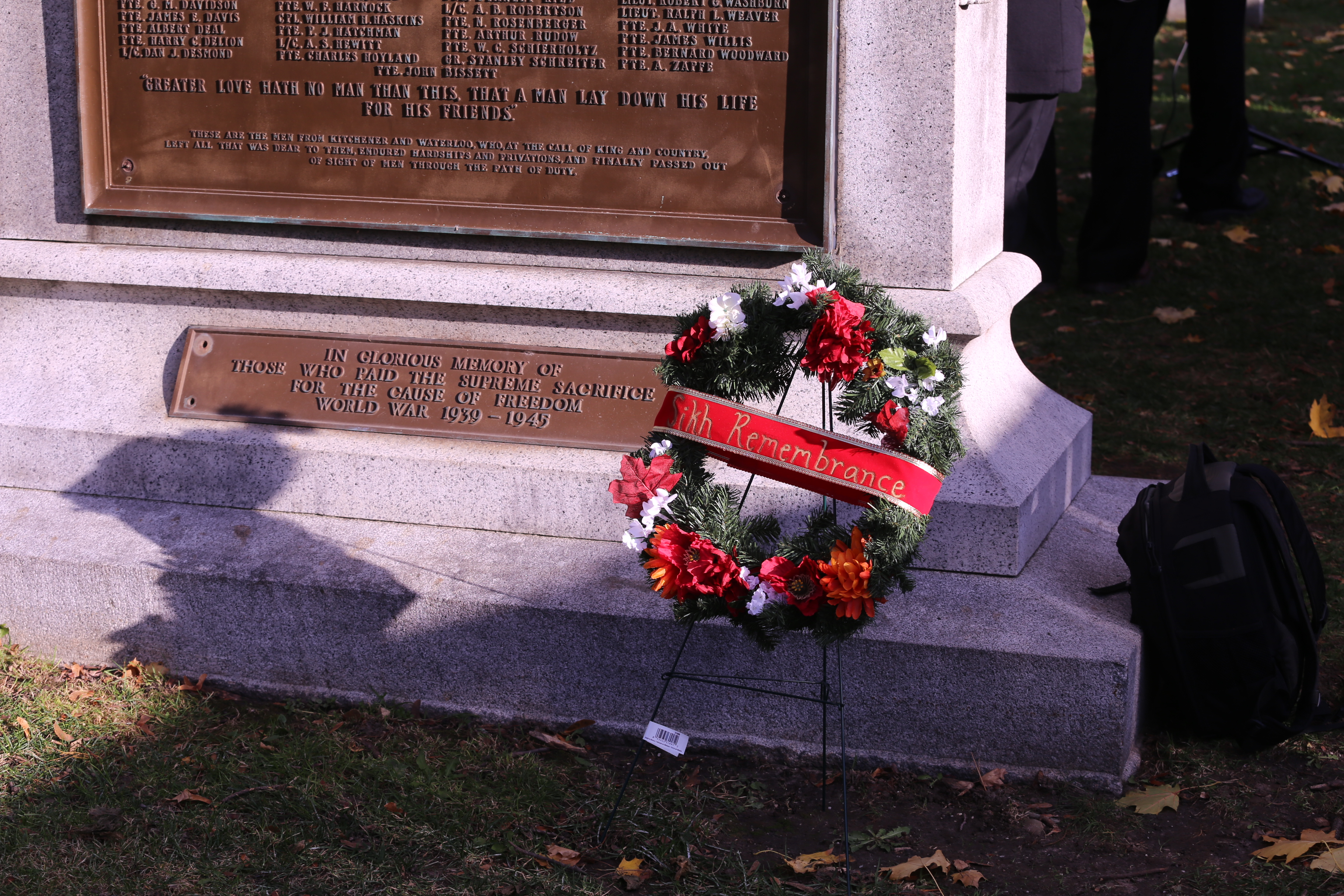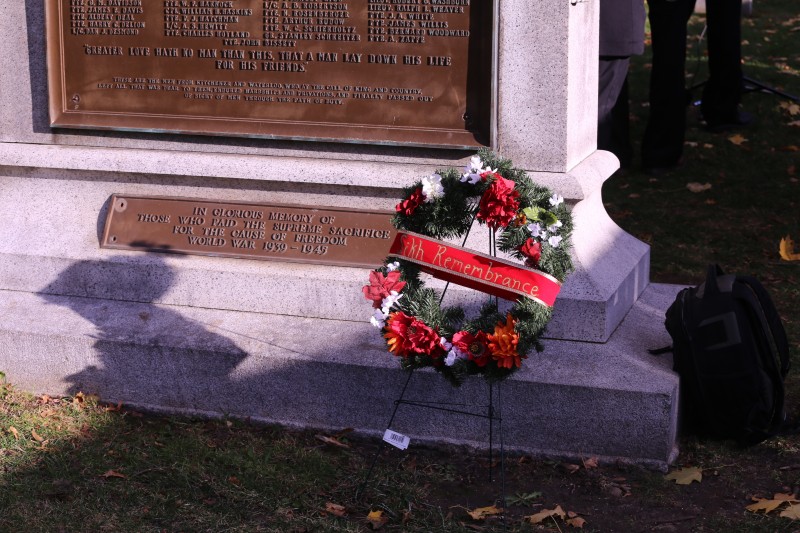More than one way to remember: Laurier honours Remembrance Day with in-person ceremony


Remembrance Day is one way to acknowledge that old truism – freedom isn’t free.
Last Friday, Wilfrid Laurier University honoured Remembrance Day with a ceremony organized by the Laurier History Students’ Association (HSA) and the Students’ Union.
Speeches and presentations were given by students and faculty, including a reading of “In Flanders Field” by Shane Symington, the president of the Students’ Union.
This was followed by a playing of “The Last Post” and a three-minute moment of silence.
Kevin Spooner, an associate professor of North American Studies at WLU, gave a presentation on the different shapes that remembrance can take.
Telling a story about his grandmother’s upbringing in small-town Ontario during World War II, Spooner detailed the myriad of ways one might remember the men and women who lived through difficult times (and others like it).
When his grandmother was a child, her mother tragically passed away. This left Spooner’s grandmother in the hands of her father, who would soon be out of the picture as well – leaving Canada and his family behind to serve as a rifleman and eventual cook in the Canadian Army.
Spooner called his approach to the presentation a “micro-history of sorts.” Focusing on one young girl’s life in this way can broaden our horizons beyond the frontlines when we consider what it means to remember.
“…the human cost of war is measured not only by deaths and casualties, but also by the individual, social, and local challenges and sacrifices that come with the upheaval wrought by conflicts,” Spooner said at the ceremony.
While remembering combat veterans is, of course, inseparable from the act of remembrance, Spooner noted that we might remember the resilience of family members like his grandmother.
But even the more common or traditional act of remembering veterans admits to nuance. Re-integrating back into society after serving is something that veterans must overcome and something that we can bring to mind when honouring them on Remembrance Day.
The human cost of war is measured not only by deaths and casualties, but also by the individual, social, and local challenges and sacrifices that come with the upheaval wrought by conflicts.
Kevin Spooner, associate professor of North American Studies at WLU
“I was talking about Remembrance Day from the perspective … of veterans, but not necessarily from their experience in battle, but [also] their experience leaving family and then the experience of re-integrating back into civilian life right after the war and the challenges that come with that,” Spooner said.
“There are all kinds of real social, psychological [and] cultural challenges with re-integration for veterans.”
Another theme that Spooner’s speech addressed was service, an ideal towards which men like his great-grandfather and millions of other Canadian veterans embody in full.
“Ultimately, his is a story of service – to Canada and to his family,” Spooner said at the ceremony.
“That lesson of service, that he and all veterans teach us, is an important one – a lesson we would do well to remember. It’s a unifying idea at a time when societies would do well to lessen divisions.”
The ceremony was just one in a decades-old tradition of the HSA hosting events on Remembrance Day.
“The HSA is … basically a club that’s been around forever for undergraduate history students,” Alyssa Firth, a history student at WLU and co-president of the HSA, said.
It runs academic events including paper-writing and citation workshops, as well as social events like movie and trivia nights. “Not only for students in the history program but also students who just have a general fascination in history,” Firth said.
“People were very engaged, especially with Dr. Spooner’s speech,” Firth said of the most recent event.
Such engagement, and especially in-person engagement, was a welcoming sight for Firth and other attendees. “It’s been nice to see those big turnouts after COVID, to kind of be able to do it in person [and] see everyone instead of just seeing a screen.”
Stepping into the role of organizer for these events, Firth has been exploring unique approaches to remembrance.
“When I started to run it, a big thing for me was definitely I want[ed] to focus on not just the soldiers but, again, being someone who studies this area it’s very much that there’s so many different people who were involved,” Firth said.
“Whether it’s women on the home front [or] people who were forced into these positions … when I run these ceremonies I very much want to highlight all of that.”
Another angle that Firth expressed interest in was Indigenous involvement in historical wars. In World War Two, according to the Government of Canada, Indigenous soldiers fought in “every major battle and campaign, including the disastrous Dieppe landings and the pivotal Normandy invasion.”
“It was a very respectful ceremony … that was very much the vibe I got,” Firth said.
Ceremonies like last Friday’s would not be possible without the work of students like Firth, and their work has not gone unappreciated. “I was pleased to see the students taking charge to actually lead and organize as they always do. I think that’s a really meaningful thing to see,” Spooner said.

